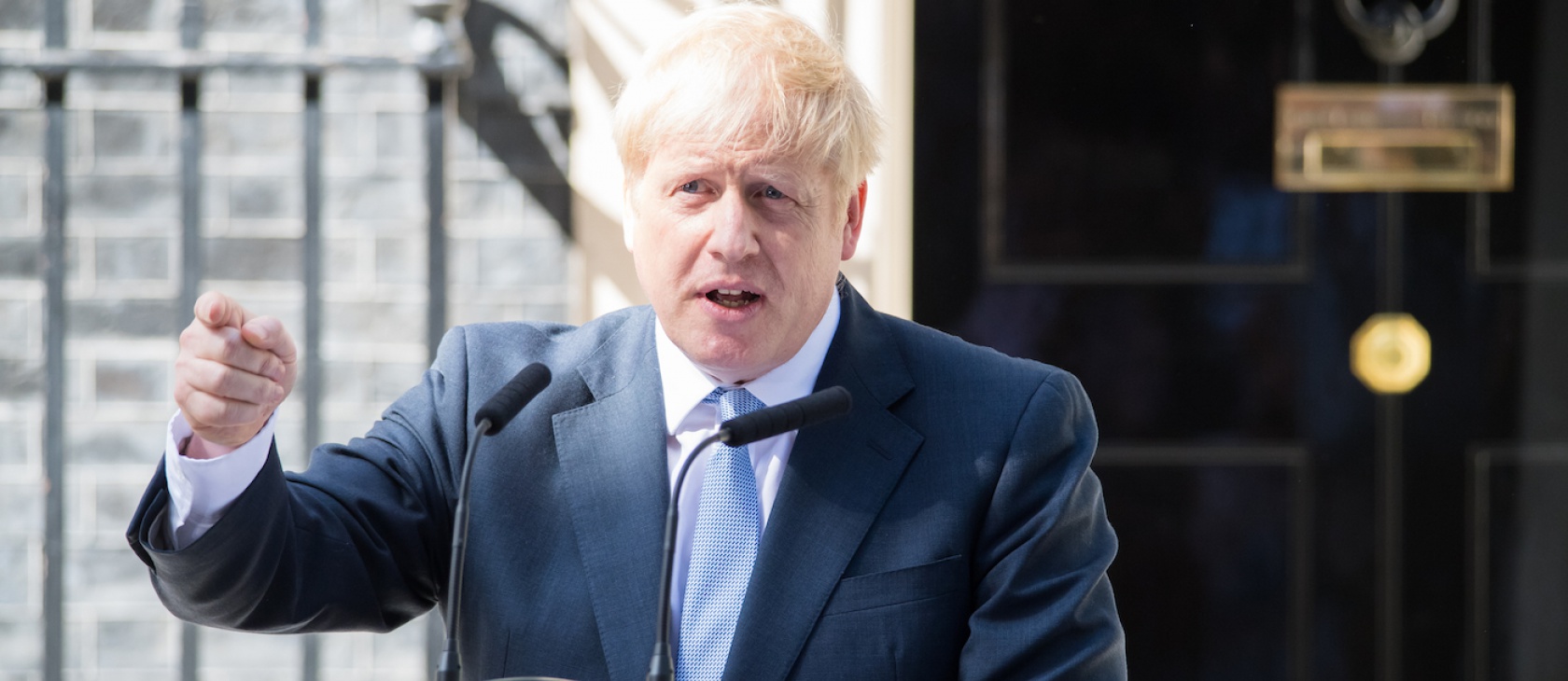Prime Minister Boris Johnson has made one of the most thorough sweeps of the Cabinet in recent history, and the Left is in meltdown. The reaction to Boris Johnson’s appointment of Jacob Rees-Mogg, a socially conservative Catholic and economic libertarian, to be the new Leader of the House of Commons (in charge of the government’s business in Parliament) was a sight to behold. Twitter is awash with indignation, protest, prophecies of doom, and the noise of the toys being thrown out of the pram. The publicly funded BBC is not far behind.
The Remain establishment may have just lost. There is a chance that Boris Johnson, the newly appointed American-born Prime Minister of the United Kingdom, may not only deliver Brexit but, just possibly, set the economy free.
Johnson was elected the leader of the Conservative and Unionist Party with 66 per cent of the vote, and the next day invited by the Queen to become the Prime Minister. A brief explanation is in order. In the UK, the Prime Minister is normally the leader of the largest party in the House of Commons, though he or she does have to command the confidence of the House. The role of the Queen is formal and symbolic; the Queen always acts in accordance with constitutional precedent and on the advice of her ministers. Hence, outgoing Prime Minister Theresa May advised the Queen to invite Boris Johnson to be the Prime Minister and form a government.
Whatever personal sympathy one might have for May, her government has been a disaster. She was worn out and worn down by Parliamentary tactics of the Remain establishment, but more by an utter lack of vision for a United Kingdom flourishing in a free world with free trade in free markets. Now, a fresh vision brings a remarkable opportunity.
Boris Johnson stamped his authority on government
In British political history there is an incident in 1962 known as “the night of the long knives,” when then-Conservative Prime Minister Harold McMillan dismissed seven members of his Cabinet, one-third of the total. Boris Johnson replaced (some by advance resignation, some by removal) 17 Cabinet members in one day, more than 50 per cent of the total. This was a far more radical overhaul than anticipated – but fundamentally necessary. The old government was tired and ineffective. There were numerous members seeking to undermine the democratic decision of the British people to leave the European Union – these advance resignations included the Chancellor (that is, Treasury Secretary), Philip Hammond. Thank the Lord they went.
Boris Johnson has stamped his authority on his new government. He appointed people not on the basis of how they had voted in 2016 but whether they were committed, in all circumstances, to leaving the undemocratic and economically crippling European Union on October 31 – and are willing to prepare for that opportunity, politically and economically. The new government is not without its complexities and challenges, but it was refreshing to see the extent of the clear-out and the new appointments made.
The Brexit challenge
One of the reasons the liberal Left is in such terminal misery is that there is little opportunity for the Remain-dominated Parliament to prevent exit on October 31. May could have led us out on March 29 but bottled it at the last minute and sought an extension. The difference is a Prime Minister with resolve.
As Jacob Rees-Mogg said,Parliament is trying to object to something it has already agreed to in law – that we leave on October 31. Therefore, the only way of stopping that process is to pass a new law. These are the options available to the Remainers:
- Force a formal vote of no confidence in the government; or
- Seek to obtain control of the Parliamentary timetable in order to pass a new law
It is already too late for the first. Any vote of no confidence in the government (which would pass if a handful of Conservative Remainers abandoned their own party and government, a real possibility) would trigger a timetable for a General Election that cannot take place before October 31. If such a motion were to succeed it would guarantee a no deal Brexit, since the Prime Minister could advise the Queen to hold an election on November 7. Parliament would be dissolved in early October, so there would be no Members of Parliament able either to pass a deal orseek to prevent a no deal Brexit. Would the socialist opposition party then campaign to rejoin the EU? If they did so, they would lose countless working-class districts in the midlands and north of England, resulting in a big Boris victory.
The second option is the most likely, although it is not likely to succeed against the will of an unwilling executive. The Remainers could almost certainly take control of the Parliamentary timetable and force a bill through the House of Commons requiring the government to seek an extension. (Note how they never own up to seeking to actually stop Brexit and repeal the Article 50 legislation which enshrines the leave date, subject to extension.) Such a vote would fail even in this Parliament. However, there is little time, and the government could also seek to frustrate the progress of any bill in the House of Lords, which has a big Remain majority in the House of Lords, which is stuffed full of politicians long past their sell-by date. Ultimately, the government might not be able to prevent such a bill passing.
Any bill forcing the government to seek a grovelling extension from the EU will encounter one problem: For a bill to become law it requires what is known as Royal Assent; the formal approval of the Crown. The Queen grants Royal Assent only on the advice of her ministers. There is precedent as recently as Tony Blair’s premiership (1997-2007) of the government blocking a backbench bill by advising the Queen not to grant Royal Assent. Boris and his new government have the resolve to do this, if necessary.
Maybe Boris will get an amended deal with the EU that passes, maybe we will leave without a deal. However, I am just beginning to think that we will in fact leave.
The UK’s economic liberty moment
Putting the politics to one side, what about economics?
By appointing Sajid Javid as Chancellor of the Exchequer and fellow Leaver Rishi Sunak as his chief assistant (a post known as Chief Secretary to the Treasury), Boris has indicated a move in the direction of free enterprise and free trade. Sunak has championed the idea of “free ports,” whereby trade in more deprived parts of the country is encouraged by a tariff-free point of entry. That is a great idea: Let’s make every point of entry a free port. Javid has argued that he will cut corporate taxes in order to encourage inward investment in the case of a no deal Brexit. Import tariffs can certainly be cut, if not eliminated. Exports to the EU would certainly be more complicated, but with tax incentives, prices can be cut. And I simply don’t believe that it is beyond the ingenuity of British businesses to complete relevant customs documentation, online or otherwise, which they already have to do to trade with the rest of the world. The new Business Secretary, Andrea Leadsom, resigned from May’s government in opposition to her “Brexit in name only.” Liz Truss, the International Trade Secretary, has spend several weeks articulating a vision for enterprise, freedom, and economic liberty.
A few complexities
Readers of this column will, no doubt, represent a variety of social, even political views. For myself, I am an old-fashioned social conservative and economic neo-liberal. Boris and the majority of his government is socially liberal, as well as economically classically liberal. Those of us on the traditional Right will welcome the conservative appointments of Priti Patel to the Home Department and Dominic Raab as Foreign Secretary, as well as Rees-Mogg and some others. Those whose views are informed by faith are likely to be disappointed in some aspects of Boris’ government’s social legislation, and we may even find on the economic side a lack of control over government spending.
Nonetheless, I sense a moment has come. I sense resolve on the part of Prime Minister and government for the first time in years. I sense he wants to take on new opportunities and new horizons for the UK.
I wish Boris Johnson well in his term as Prime Minister of the United Kingdom.




